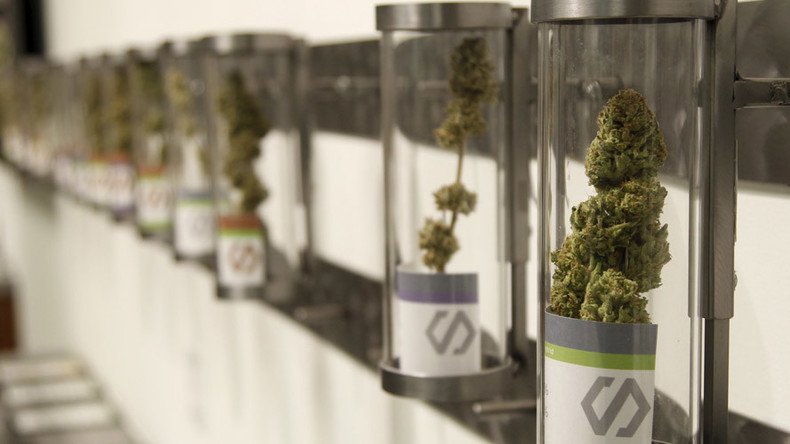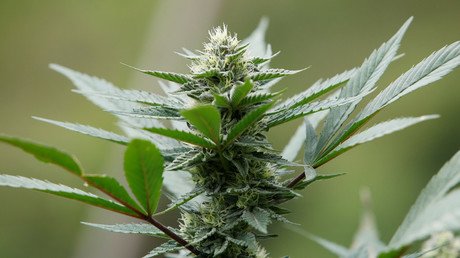Don't take the high road? Study finds legal pot link to car crash rise

Legalizing marijuana for recreational use has cost three states when it comes to road safety, a new study finds. Collision claims have increased as a result, according to a car insurance-related non-profit.
The non-profit research organisation, Highway Loss Data Institute (HLDI), published their findings on their website Thursday. The group, known for publishing insurance loss statistics, says it has found a link between legalized pot and a surge in car accidents.
HLDI gathered data from Colorado, Oregon and Washington, states which have recently legalized marijuana for recreational use.
Colorado registered 14 percent more collisions than their neighbor states, Wyoming, Nebraska and Utah. Washington recorded a 6 percent higher rate than Montana and Idaho in terms of collision claims. Oregon’s claim rate was 4 percent more than Idaho, Montana and Nevada, according to the HLDI.
Josh Lewis, a trooper who serves with the Colorado State Patrol, says data from their agency is just not there to prove that marijuana is causing all these collisions. He added that “people don’t always understand what marijuana can do,” according to KCNC.
“I see what is an increase in collision claims but it does not indicate that these claimers are using cannabis themselves or under the influence of Cannabis, or alcohol or other substances,” KCNC quoted Jerri Shepherd of the National Organization for the Reform of Marijuana Laws (NORML) as saying.
Previous studies have offered contrasting conclusions, and experts have weighed in with skepticism on similar reports.
A Columbia University study, which analysed data from 1985 to 2014, shows that states which have legalized marijuana for medical purposes had a lower traffic fatality rate.
US state laws for driving on marijuana are unscientific - AAA study https://t.co/lbyIT9kIklpic.twitter.com/bPyHA6qhRX
— RT America (@RT_America) May 10, 2016
On average, the traffic-related death rate for those aged 15 to 44 dropped following the passage of medical marijuana laws. Results based solely on state data, however, showed only seven states with lower rates than those where medical marijuana is outlawed.
READ MORE: Not so dope: Police test first marijuana breathalyzer on Cali drivers
Paul Armentano, the deputy director of NORML, responded to similar studies in 2015, telling NPR, “we must not conflate the detection of these compounds as evidence of impairment.”
Armentano argued that there was no way of telling, even if THC was indeed in the blood, whether or not that had anything to do with impairing the driver. He said there is no telling how impaired someone is solely by looking at their THC levels, according to NPR.













